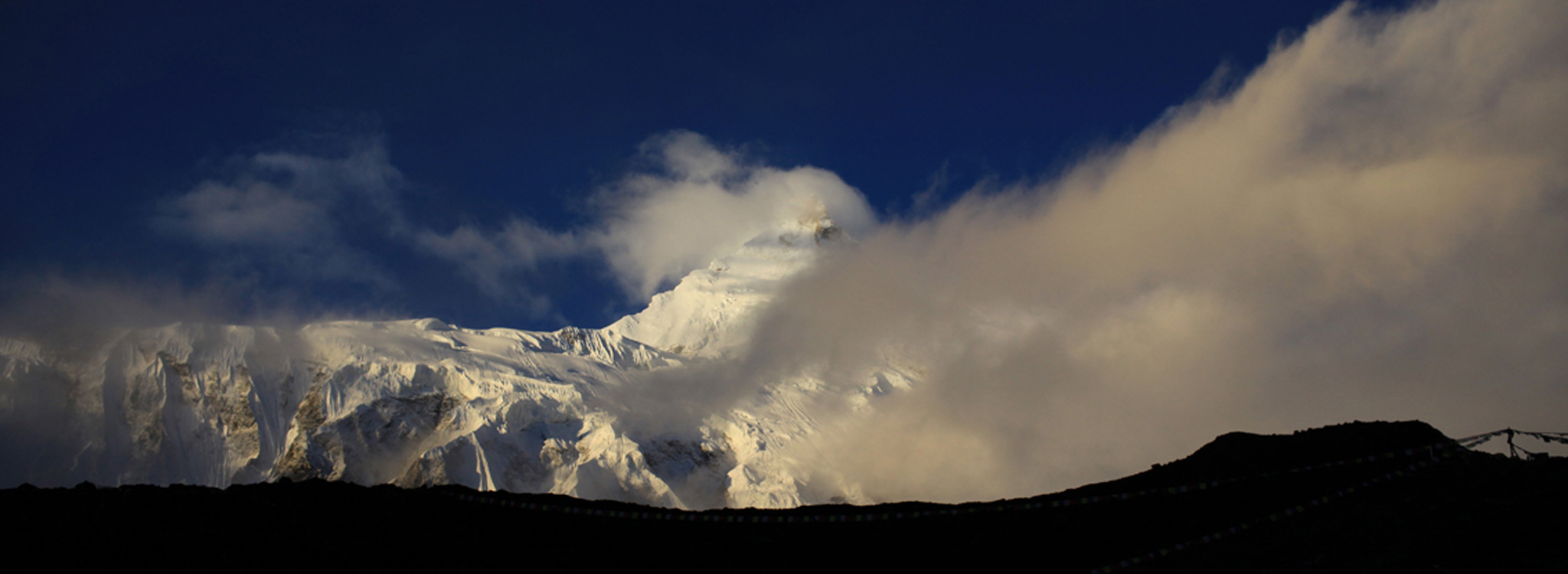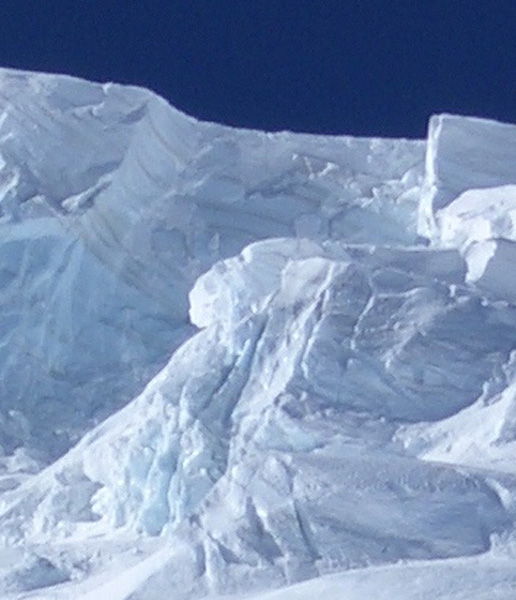Three years later, I was sleeping in my tent at Manaslu base camp, with 8165 meters, the world’s eighth highest mountain. It was the morning of the summit push, the last opportunity to enjoy the comforts of base camp at 4950 meters: sleeping, eating, drinking and above all, relaxing.
A dull penetrating bang cut through the silence and grace of the sunrise. 5:15 am. I sat up suddenly in my sleeping bag and thought to myself that the metallic hiss of the opening tent zipper had brought an abrupt but welcome end to a powerful dream. I was full expecting the disarming laugh of our cook, Lacchu, whose first good deed of the day was to hand into the tent a cup of Masala tea.
Wrong. Much too early. No Lacchu, no tea.
Motionless, cowering in my sleeping bag, I had no idea what was happening. I could only hear. I saw and understood nothing. I started to put the pieces of the puzzle together, to cautiously form a picture in my mind of what might have happened. A sense of trepidation started to take hold. I was using the shelter of my tent as a shield against that drama going on outside.
I heard voices, garbled conversations, the crackling of radios. The voices became louder, more animated, rapid movement from tent to tent. Then reality took hold.
I got dressed, got out of the tent and sat on the stone in front of my tent, which had become my sofa whilst I drank tea and allowed the first rays of morning sun to warm me after the cold of the night.
I had the best seat in the house, with a view of disaster and tragedy.
Beneath the false summit of the Manaslu, enormous masses of ice had broken away. The avalanche lead to the worst tragedy since the first ascent of Manaslu. With pitiless force, the blocks of ice had rolled over the camps of any climbers in its path. The cosy security of their tents was to become a deadly trap. Most of them suffered broken necks. Their tents became their grave, as they were swept, still inside, into crevasses of the glacier.
Many were never found.
The mountain had shown its might and put the presumed greatness of mankind into perspective.
The few survivors – seriously injured, paralysed, traumatised – were saved by expedition sherpas. They had overcome their fear in this dangerous unstable terrain and climbed to 6300m.
The tiny change to our timetable for the ascent to the summit, by one day, had saved my life.
Nevertheless, the 25. November 2012, despite the later successful climb to the summit, left its mark on me.
Twice I had been granted the gift of life. Now it was time to give something back.



